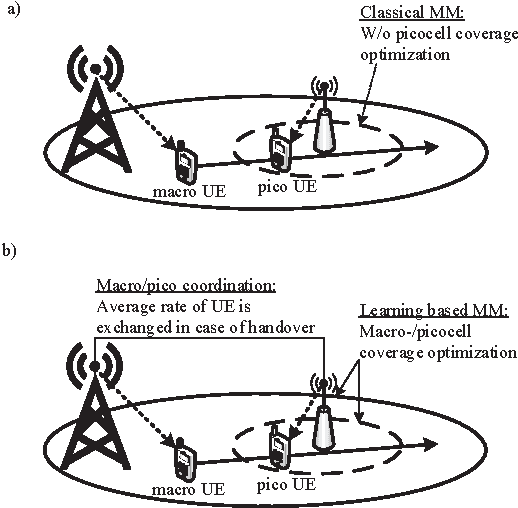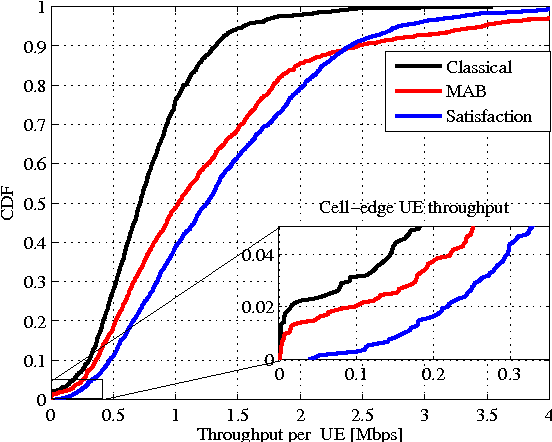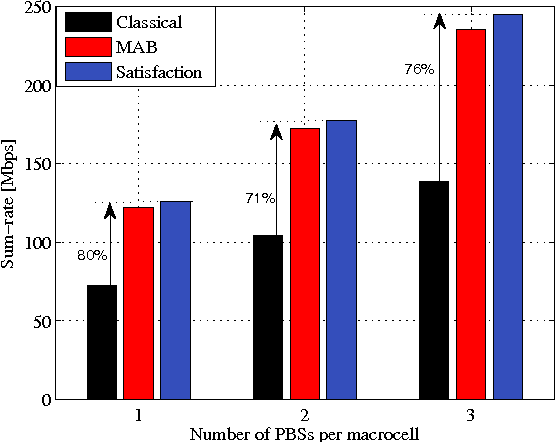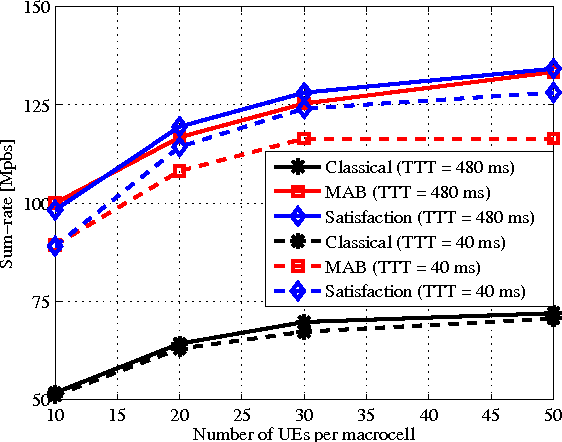Ismail Güvenc
Context-Aware Mobility Management in HetNets: A Reinforcement Learning Approach
May 07, 2015



Abstract:The use of small cell deployments in heterogeneous network (HetNet) environments is expected to be a key feature of 4G networks and beyond, and essential for providing higher user throughput and cell-edge coverage. However, due to different coverage sizes of macro and pico base stations (BSs), such a paradigm shift introduces additional requirements and challenges in dense networks. Among these challenges is the handover performance of user equipment (UEs), which will be impacted especially when high velocity UEs traverse picocells. In this paper, we propose a coordination-based and context-aware mobility management (MM) procedure for small cell networks using tools from reinforcement learning. Here, macro and pico BSs jointly learn their long-term traffic loads and optimal cell range expansion, and schedule their UEs based on their velocities and historical rates (exchanged among tiers). The proposed approach is shown to not only outperform the classical MM in terms of UE throughput, but also to enable better fairness. In average, a gain of up to 80\% is achieved for UE throughput, while the handover failure probability is reduced up to a factor of three by the proposed learning based MM approaches.
 Add to Chrome
Add to Chrome Add to Firefox
Add to Firefox Add to Edge
Add to Edge